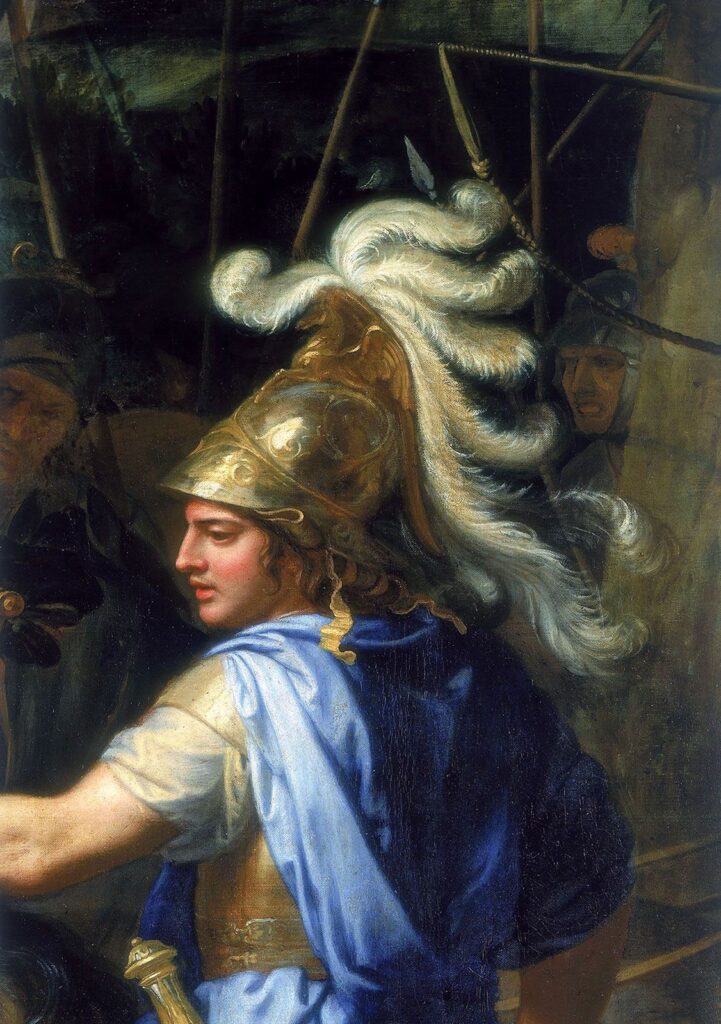Alexander the Great, also known as Alexander III of Macedon, was a legendary military leader whose conquests extended the boundaries of the known world and established the Greek Empire as a dominant force. His strategic vision, tactical brilliance, and charismatic personality set him apart as one of the greatest leaders in history. Born in 356 BC in Macedon, Alexander was tutored by Aristotle, which shaped his character and prepared him for his future role as a military commander. His rise to power after the assassination of his father, King Philip II, showcased his ability to quickly consolidate power and launch successful military campaigns. Alexander’s leadership style, marked by his ability to inspire and motivate his troops on the battlefield, earned him the loyalty and respect of his soldiers. His legacy as a military leader and visionary ruler continues to inspire leaders and historians to this day.
Alexander the Great’s Leadership: Conquering the World with Strategy and Skill
Introduction
Alexander the Great, also known as Alexander III of Macedon, was one of the most successful military leaders in history. His conquests extended the boundaries of the known world and established the Greek Empire as one of the most powerful forces of its time. Alexander’s leadership was characterized by his strategic vision, tactical brilliance, and charismatic personality. His ability to inspire his troops and lead them to victory in battle made him a legendary figure in the annals of history.
Early Life and Education
Alexander was born in 356 BC in the ancient Greek kingdom of Macedon. He was the son of King Philip II and Queen Olympia, and from a young age, he showed great promise as a leader. He was tutored by the philosopher Aristotle, who instilled in him a love of learning, a keen intellect, and a passion for knowledge. Alexander’s education played a crucial role in shaping his character and preparing him for his future role as a military commander.
Rise to Power
After the assassination of his father, King Philip II, in 336 BC, Alexander ascended to the throne of Macedon at the age of 20. He quickly consolidated his power and launched a series of military campaigns to expand his empire. In a stunning display of strategic brilliance, Alexander defeated the Persian Empire in a series of battles, including the famous Battle of Issus in 333 BC and the Battle of Gaugamela in 331 BC.
Leadership Style
Alexander’s leadership style was marked by his ability to inspire and motivate his troops to achieve greatness. He led by example, always at the forefront of his armies in battle, displaying courage and skill that earned him the loyalty and respect of his soldiers. He was a master tactician, able to quickly adapt to changing circumstances on the battlefield and devise innovative strategies to defeat his enemies.
Legacy
Alexander the Great’s conquests had a lasting impact on the course of history. His empire stretched from Greece to India, and his influence spread throughout the known world. He founded numerous cities, including Alexandria in Egypt, which became centers of learning, culture, and commerce. Alexander’s legacy as a military leader and visionary ruler continues to inspire leaders and historians to this day.
Conclusion
Alexander the Great’s leadership was characterized by his strategic vision, tactical brilliance, and charismatic personality. His ability to inspire his troops and lead them to victory in battle made him one of the greatest military leaders in history. His conquests expanded the boundaries of the known world and established the Greek Empire as one of the most powerful forces of its time. Alexander’s legacy as a military leader and visionary ruler continues to inspire leaders and historians to this day.
